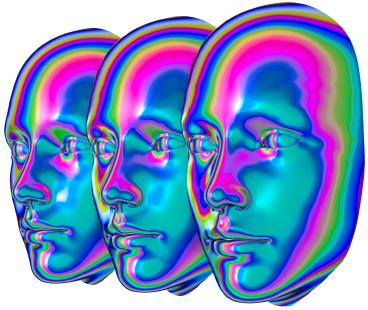Home > Psikologi Trading > Insting trading
Konsep ini mengatakan bahwa berbagai faktor tersebut dapat mengakibatkan perilaku seperti cara pikir yang bias, keputusan irasional, atau respons impulsif yang tidak sesuai. Psikologi trading juga menyoroti pentingnya kesadaran diri, manajemen risiko yang efektif, manajemen emosi, dan pola pikir berimbang untuk mengatasi stres akibat trading dan mengambil keputusan rasional.
Insting trading adalah komponen penting dalam psikologi trading individu. Ini adalah intuisi atau naluri yang kerap terbangun pada trader seiring waktu atau melalui pengalaman trading. Insting ini biasa didapat melalui pembelajaran dan latihan berkelanjutan, dan memerlukan pengetahuan mengenai berita dan agenda pasar, dan indikator ekonomi.
Memiliki kesadaran diri mencakup kemampuan untuk percaya pada insting trading Anda sendiri. Anda harus dapat membedakan antara keputusan berdasarkan data dan informasi yang rasional dan keputusan berdasarkan emosi dan perasaan belaka. Memahami bahwa batas antara objektivitas dan subjektivitas dapat terdistorsi dengan mudah dan menemukan cara untuk membedakan keduanya sangat penting untuk pengambilan keputusan yang baik.
Insting trading biasanya dipengaruhi oleh 3 fenomena psikologis. Mari kita bahas secara lebih mendetail.
Bias sensori berdasarkan ide bahwa kita membentuk opini berdasarkan informasi yang mungkin bias. Kita selalu mengumpulkan data dari berbagai sumber di sekitar kita. Tindakan ini memungkinkan kita bekerja setiap hari.
Ini juga membantu kita belajar. Namun, tidak semua hal yang kita dengar adalah fakta tanpa bias, walaupun kita menyangka demikian. Ini biasanya terjadi jika kita terekspos ke satu sudut pandang mengenai topik atau agenda tertentu secara berulang. Tanpa pandangan lain yang mengimbangi sudut pandang tersebut, opini yang terbentuk kemungkinan berdasarkan "satu sisi mata uang" saja, dan dapat mengubah "fakta" menjadi bias.

Konsep ini merujuk pada rasa takut terhadap hal yang tidak diketahui. Ini adalah tindakan menghindari sesuatu yang belum kita ketahui, tidak kita kenal, sesuatu yang mungkin (atau tidak mungkin) terjadi. Di dunia trading, perilaku ini dapat menyebabkan toleransi risiko yang sangat rendah, dan mengakibatkan hasil finansial yang tidak menguntungkan.
Ada berbagai alasan mengapa orang menghindari yang tidak jelas. Salah satu alasannya adalah takut kehilangan uang. Alasan lain yang jarang diketahui adalah takut menghasilkan uang. Trader mungkin takut keuntungan yang sudah didapat akan hilang, baik karena kewajiban pajak atau lainnya, seperti fluktuasi pasar yang agresif.

Keberwujudan antisipasi biasanya terjadi ketika fokus terletak pada rasa antisipasi itu sendiri, bukan mendapatkan apa yang menjadi antisipasi.
Rasa antisipasi dapat begitu besar, hampir seperti kecanduan, sehingga trader kehilangan fokus dalam mencapai apa yang menjadi antisipasi. Antisipasi dipengaruhi bukan hanya oleh analisis objektif, melainkan juga oleh psikologi kolektif para peserta pasar.

Thank you for visiting T4Trade
This website is not directed at EU residents and falls outside the European and MiFID II regulatory framework.
Please click below if you wish to continue to T4Trade anyway.
Thank you for visiting T4Trade
This website is not directed at UK residents and falls outside the European and MiFID II regulatory framework, as well as the rules, guidance and protections set out in the UK Financial Conduct Authority Handbook.
Please click below if you wish to continue to T4Trade anyway.